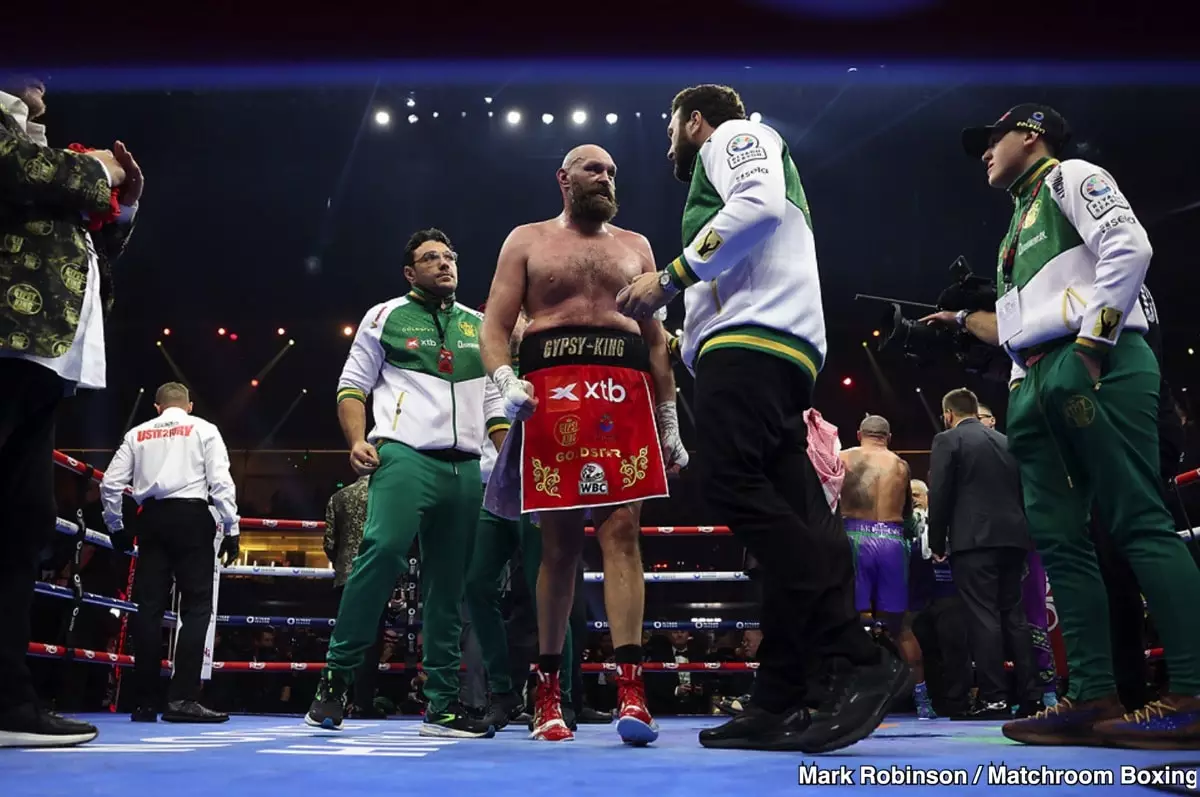In the tumultuous world of professional boxing, few fighters are as iconic as Tyson Fury. Known as “The Gypsy King,” Fury’s charisma, combined with his remarkable skill and tumultuous journey, has captivated fans globally. However, as respected promoter Bob Arum recently pointed out, perhaps it’s time for Fury to put down his boxing gloves for good. With a career laden with achievements, financial success, and now the potential to influence outside the ring, the call for retirement is both poignant and practical.
Retirement can often be misconstrued as the end of an athlete’s journey. In reality, for someone like Fury, it could mark the beginning of a new chapter filled with diverse opportunities. Bob Arum argues that having accrued a staggering fortune of approximately $250 million, Fury should heed the wisdom of stepping away now while his health—both physical and mental—is intact. This sentiment encapsulates not just the welfare of the athlete but also the overarching theme of self-preservation and strategic career management.
The Weight of Wealth and Performance
Fury’s financial standing speaks volumes about his legacy. With exceptional earnings from high-profile bouts, including those against Oleksandr Usyk and Dillian Whyte, he has achieved a level of financial security that many fighters can only dream of. But wealth is a double-edged sword; while it provides comfort, it can also mask the realities of decline in performance. Fury’s recent appearances have raised eyebrows, particularly regarding his physical condition. Resembling Fagin from the classic film “Oliver,” with extra weight around his midsection, he has demonstrated a noticeable deviation from the lighter, more agile body that once defined him as a champion.
In the ring, performance is paramount. With age creeping up and the ruthless nature of heavyweight boxing still looming, the potential for injury and diminished capabilities becomes a genuine risk. Facing contemporary heavyweights like Anthony Joshua or Daniel Dubois could prove disastrous, given his current state of readiness. The stark reality is that every fighter has a shelf life, and for Fury, that clock is ticking ominously.
Beyond the Ring: A New Role for Fury
While the thought of stepping into the ring may still be enticing for some, Arum’s suggestion to shift focus toward acting as a spokesperson is not only wise but also timely. Fury possesses a magnetic personality and eloquence that could shine in various roles outside the squared circle. The boxing world lacks compelling voices that resonate with the next generation, and Fury can be one of those torchbearers. In an era where mental health and wellbeing are increasingly spotlighted, his journey—from battling inner demons to emerging victorious—could provide invaluable guidance and inspiration to many.
Furthermore, his capabilities as a communicator could allow him to delve into television, media, or even philanthropy. Fighters can sometimes become more than just athletes; they can evolve into public figures who connect with audiences on multiple levels. By stepping away from the ring, Fury opens doors for empowerment while advocating for causes he’s passionate about, thereby leaving a lasting legacy far greater than mere fight stats.
A Cautionary Tale for Future Generations
Fury is not only a significant figure in boxing but a representation of what success can look like when it aligns with true resilience. His career comes with tales of pressure, depression, and the fight for personal identity that resonate deeply in today’s society. Sharing these experiences after retiring could serve as a cautionary tale, illustrating the sacrifices and struggles that accompany meteoric rises to fame and success.
As boxing continues to evolve, so too does the role of its athletes. They are not confined to their physicality; rather, their narratives can reach far beyond the sport itself. Tyson Fury stands at a crossroads, and embracing retirement could grant him the space to redefine what it means to be a champion—one who empowers others rather than risks further damages for fleeting accolades. Choosing to remain retired would not only be a wise choice for him personally but could also inspire a legacy that reshapes the culture of boxing itself.


Leave a Reply